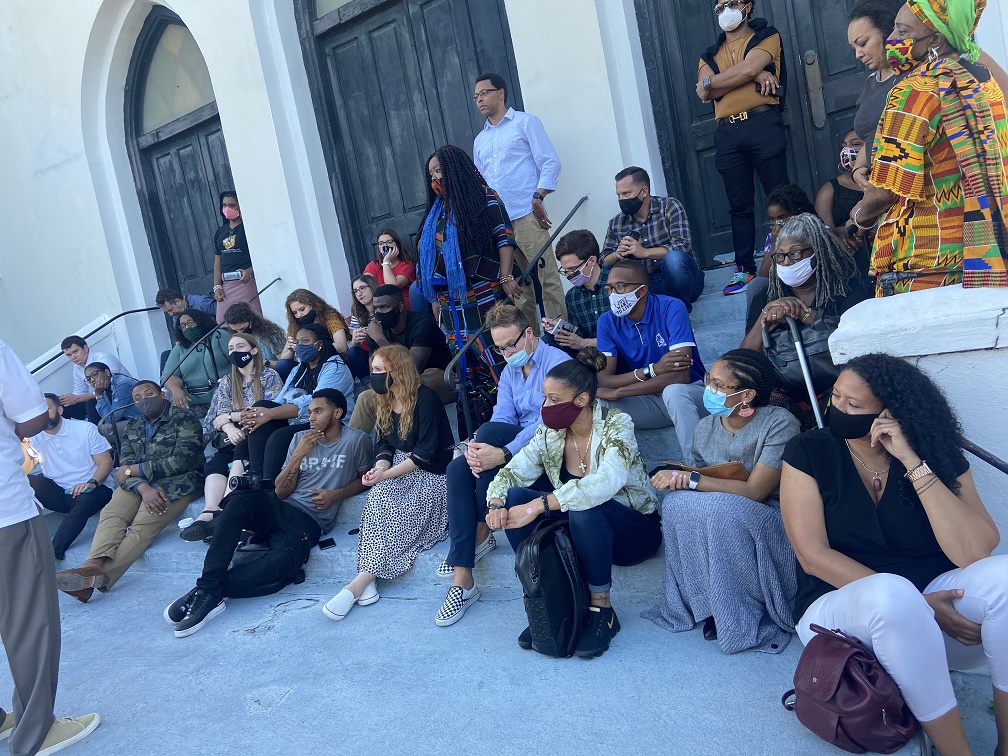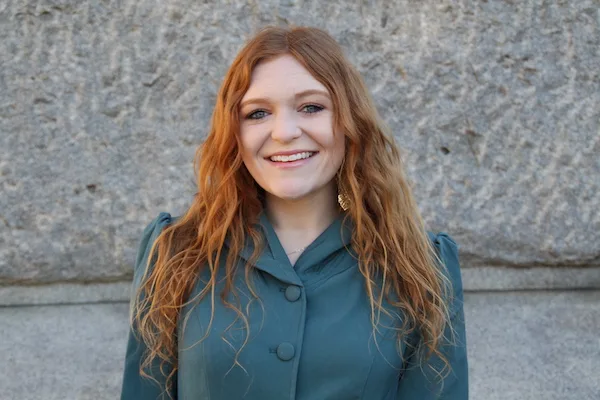With its cobblestone streets and Italianate architecture, a stroll through downtown Charleston makes you feel as if you’re tucked away in a sleepy European town, palmetto trees notwithstanding. This beauty, however, is met with just as much abhorrence in the city’s history. A place that can simultaneously be so beautiful, yet so broken, is the ultimate symbol of America in 2020 — and the perfect place to begin our healing process. The city’s churches and religious history are a good place to start, with a coalition of the black and white church leading the way.
Last weekend, I traveled with a delegation of twenty black and white young Christian leaders to Charleston for a conference on race, dialogue, and reconciliation. Taking place just ten days before the contentious U.S. presidential elections, a main theme of the conference was, “We may vote different, but we pray to the same God.” It is of course no secret that 81% of white evangelicals voted for Donald Trump in 2016, while 80% of black Christians who voted in the 2018 midterm elections disapproved of the President’s job performance.
The conference, or “conversation,” was hosted by Passages Israel and the Philos Project, organizations that have invested heavily not just in me personally, but in thousands of young Christians throughout the country in the past five years.
There was no better setting for the conversation to take place: 2020 in the wake of the murder of George Floyd, which shook the nation and was a turning point for the way many white evangelicals think about race in America, and in a city so fraught with a history of racial injustice.
When I first sat down at my (socially-distanced) conference table on Friday evening, I met a young black man sitting in front of me. We bonded over the fact that we both live in Washington, DC and moved to the city during the pandemic — which has made it challenging to build community. As the conference began, this young man turned out to be the moderator of the first panel, and the words he stated would affect how I viewed the remainder of the weekend.
The man, from South Carolina himself, stated, “I love the city of Charleston. But how it can be so beautiful, yet so painful, this place is a microcosm of America.”
These words weighed on my heart throughout the weekend as we traveled to the McLeod Plantation, Old Slave Mart Museum, and Mother Emanuel AME Church, where a self-proclaimed white supremacist murdered nine church members, including pastor Clementa Pinckney, during a Wednesday night bible study in June 2015.
One of the most spiritually powerful moments of the weekend for me was visiting Mother Emanuel Church and listening to a parishioner who personally knew the victims of the horrific 2015 mass shooting. Mother Emanuel AME itself is a breathtakingly beautiful stone white church, marked with a prominent black cross and black features. As we sat together on the church’s steps at sunset, or “golden hour” as someone of my generation would call it, this thought again ran through my head — so beautiful, yet so broken.
On Saturday evening, we gathered to hear the unbelievable story of friendship between Will Ford, Founder of Hilkiah Ministries in Dallas, Texas, and Matt Lockett, Executive Director of the Justice House of Prayer in Washington, DC. The two coauthored The Dream King: How the Dream of Martin Luther King, Jr. is Being Fulfilled to Heal Racism in America, and their life stories and work may also be a microcosm of our path forward in healing this divided nation — with white and black church leaders collating to lead the way.
“The commitment of our forefathers has now become the calling of our time,” stated Ford, in light of the prevalence that race relations have taken in American society since the summer. “Only the united church is going to heal this divided nation.”
Although I’m in agreement with Ford, I would add that the united church is not just a necessity in our path forward, but the only way for us to move forward in healing this divided nation. We should not discount the crucial role of black churches in the civil rights movement, nor should we discount the good that a united Christian movement can do for our nation today.
We must reconcile with our nation’s past, incorporating a more just and honest teaching of black history in our nation’s textbooks and culture. This starts with Charleston, as nearly 85% of black Americans have at least one ancestor who at some point traveled through Charleston as part of the transatlantic slave trade. But we can’t stop there.
Americans must accept and embrace our nation’s deep diversity and resist the forces trying to tear us apart, and this starts with American Christians of all color and backgrounds. “God is not looking for people to stand on the radical right or the radical left. He’s looking for someone to stand in the radical gap,” stated Ford in a Sunday morning worship service.
As we enter the homestretch of this election cycle and still confront the racial disparities that have come to the forefront of American society since the summer, let us not forget that America can be just like Charleston — beautiful, yet broken, and with a history that still needs to be reconciled with. The sooner we realize this, the sooner we can move towards healing, and it will be a united church that leads the way.






Comment by Wm. "Bill" Paul on October 26, 2020 at 5:19 pm
I think it is 81% of those white evangelicals who voted. A significant difference, unless (and I don’t know about this) those who voted are a predictor of how those who didn’t vote would have voted.
Comment by Douglas E Ehrhardt on October 27, 2020 at 4:04 am
The murder of George Floyd? I wasn’t aware of a conviction .
Comment by Frank Lee on October 27, 2020 at 9:30 am
Knowing human nature, I do not foresee much change in the so-called racial conflict arena. From what I’ve seen, usually most efforts arising from within the human sphere is a waste. The most effective integrator is a common experience of dire need, a very basic and deep down stirring disaster which levels the playing fields in no uncertain terms, reducing people down to their most basic level of humanity that forces them to work on purely those terms – helping each other to stay alive